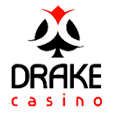
Regulations governing Croatia’s gambling industry are undergoing significant changes, with authorities implementing new measures to counteract the rise of illicit gaming operations. Despite stringent regulations, black market gambling remains a persistent issue, prompting lawmakers to refine their approach to enforcement. These latest amendments focus not only on shutting down unauthorized platforms but also on restricting financial transactions that sustain them. Additionally, new advertising rules and tax revisions are set to reshape the industry landscape.
Efforts to eliminate unregulated gambling in Croatia have historically relied on an IP blocking strategy, which has led to the restriction of approximately 900 illegal gambling websites. However, despite these measures, unauthorized operators continue to find ways to circumvent these restrictions. Recognizing the limitations of IP blocking alone, the Croatian government is now shifting its strategy towards a more effective deterrent—cutting off their access to financial transactions.
Under the new regulatory framework, authorities will target payment providers that facilitate transactions between Croatian players and black market operators. By blocking these financial connections, the government aims to disrupt the profitability of illegal gambling enterprises, ultimately discouraging their operations within the country. This approach aligns with strategies seen in other jurisdictions, which have proven to be more effective than solely relying on website bans.



















